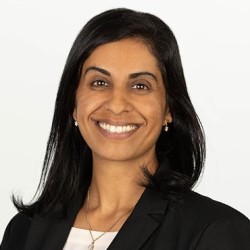by Taji Kommineni, JD, LLM
Navigating the vicissitudes of medical school is an arduous journey. For many, me included, the first 2 years of basic science can be daunting and difficult. The reward, after spending hours studying, preparing, and taking exams (I'm looking at you Step 1), was my successful transition into clinical medicine for the third and fourth years. However, bridging the gap from basic science to clinical medicine requires an understanding of how to integrate into a clinical environment, whether in an outpatient setting or within a hospital. As a practicing trial attorney for 13 years and now a graduating medical student, my clinical years were a marvelous success and I want to share a few aspects of my longitudinal success.
Confidence is an unwavering element in my daily life. As a trial attorney, I confidently answer direct legal questions and also admit if I do not know the answer. During my clinical rotations, I noticed that my classmates were less confident answering direct questions: most found the experience to be stress inducing. To enhance my medical confidence and not be intimidated by attendings asking a litany of questions, which honestly reminded me of being back in court answering to a judge, I had a daily algorithm of arriving early, reviewing labs and imaging, and reading up on the various conditions affecting my patients. Of course, I did not know all the subtle nuances of every patient's disorder, but I was able to participate in meaningful and intelligent discussions on a variety of topics, simply based on my review of my patient's chart. I found that my preliminary chart review was akin to how I would perform due diligence for my legal clients. I felt confident that I had done the research needed to understand the patient and converse with the residents and attendings. It is through my preparation and diligence that I can confidently answer questions presented from my patients, preceptors, and peers.
Another significant component to my success is the amalgamation of being humble and working with others as a team. Hubris is dangerous and it plagued many of my classmates. I was fortunate to work with and learn from doctors, technicians, nurses, and hospital staff. Learning from and respecting those around me, regardless of their degrees or perceived prestige, allowed me to make meaningful connections and helped me differentiate myself from my peers. One instance during my third-year internal medicine rotation reflects the confluence of being humble and working as a team. Early one morning, I went to preround a newly admitted patient who presented with chest pain and did not speak English. The translator iPads were all in use, and I needed to communicate with my patient as part of my medical student due diligence. As I struggled to communicate with my patient, I heard a voice behind me saying, “I know what she is saying; we speak the same language.” I turned around, and standing behind me was a woman I had seen many times before as she delivered and removed patient meal trays. She and I would routinely exchange a smile and say hello as we passed each other, both hurrying to our respective locations within a patient's room. Without any pause or hesitation, she helped me and translated what my patient was saying. Without her assistance, I would not have been able to communicate with my patient, leaving my patient to feel alone and in pain. Would the woman who translated for me have helped another student like she did for me, or did she help me because I always took a moment to smile and say hello? The answer to that question I will never know. What I do know is that I never lose by being humble and friendly but rather I always gain an incalculable amount simply by saying hello and treating people as I would want to be treated.
Making the transition from attorney to future physician was only possible for me because of the team of people that I worked with who took the time to guide me. From the janitorial staff to the program directors, everyone in the hospital had a part to play in my success and I am lucky to be the recipient of their time and expertise. The third and fourth years of medical school were some of the best moments I have had in any professional school. Although at times I never felt smaller, it was through being small that I exponentially gained. I hope I can inspire other medical students to be confident and humble and to work with everyone as a team.

Taji Kommineni, JD, LLM
American University of Antigua College of Medicine
Graduating Class of 2023
Back to the January 2024 issue of ACP IMpact

